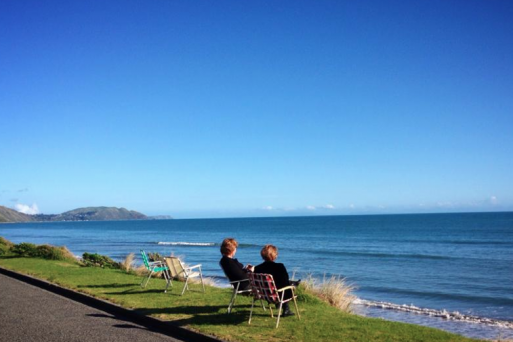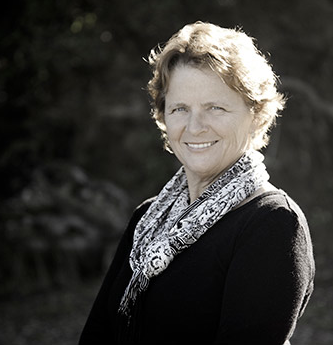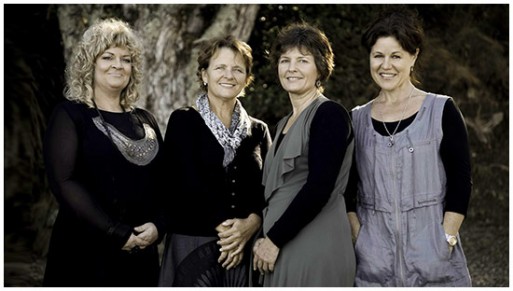Today, SevenPonds speaks with Deb Cairns of State of Grace: Family Directed Funerals in Auckland, New Zealand. After her dear friend died of cancer, she was inspired to create in-home or family-directed funeral services that provide a “caring, compassionate and highly personalized approach to death care and funeral arrangements.” Deb talks about the beauty of caring for a loved one after death, what to expect from that first home funeral consultant meeting, and what it’s like to be in the presence of a dying person.
MaryFrances: What is State of Grace? What are some of the services you provide?
Deb: We are a women-owned and operated eco funeral business, and have been operating for around 8 years now. Our model is small, niche, boutique – we work very closely with our families and describe our service as family-led – encouraging each family to have as much involvement as possible in every aspect of the care of the loved one who has died.
We offer full funeral arrangements, but with careful regard impact on the environment of every step of our service. Our services range, but we can provide kinds, just like the bigger companies – but with a subtle twist! We encourage the use of eco-caskets, or the use of a rental casket with the liner that is cremated thus saving the burning of expensive coffins. We [also] avoid unnecessary embalming – currently our embalming rate is at around 7% of our clients, whereas the national average here in New Zealand is over 90%.
“…our embalming rate is at around 7% of our clients, whereas the national average here in New Zealand is over 90%.”
Our alternative to embalming is our coolroom- where our clients can be kept cool for up to two weeks with no intervention or chemical treatment, just a gentle wash down with essential oils. One of the services that we offer and few others do is the care of the deceased person in their own home, using simple ice packs and encouraging the family to help out.
MaryFrances: What are some words you would use to describe your work?
Deb: Compassion, respect, integrity, love, care and authenticity.
MaryFrances: Could you walk us through an example of a ‘typical’ home funeral process?
Deb: Often, a family would have made contact with us prior to someone dying. So they will ring, for example, and tell us a family member has passed away. We’ll talk calmly with them for a few minutes to get a little what-who-where information, and also to give them time to clear their heads and feel reassured.
We ask that they let the family doctor know, and then we head over to the home, armed with ice packs and the required paperwork, etc. We greet the family with hugs on arrival—it just feels natural to—and then ask to meet the person who has died, always greeting them by name and sitting with them for a bit with the family. Then, we ensure that they are clean, dry and comfortable.

Some of the women of State of Grace relax after a hard day’s work.
(credit: State of Grace Funerals, Facebook)
If the family is ready, we can wash and dress the person with their help. We place ice packs around the abdomen, make sure they are as cool and natural as possible, attend to any other practical matters to ensure that the experience of having the person at home is as stress-free as possible for the family. We then sit with the family and plan the funeral, discuss options for a venue, catering, casket—all of the practical considerations. Before we go, we ensure that a roster of sorts is established for changing the ice packs every few hours. The beauty of this is that it gives the family a real reason to touch and care for the body of the one they love – they can care for that person right to the very end.
“The beauty of this is that it gives the family a real reason to touch and care for the body of the one they love – they can care for that person right to the very end.”
MaryFrances: What is it like to be in the presence of someone who has just passed?
Deb: We are rarely present when someone dies, but are often at the home soon after. To me, the feeling in the air feels exactly the same as the one at a birth! People speak in hushed tones; things feel gentle; yes, there is sadness but also so much love—emotions are being expressed, hugs and tears and a myriad of human emotions are there. It is a powerful and charged feeling, hard to describe but there is certainly a common theme: sad and beautiful, and we always feel so very privileged to be a part of it.
MaryFrances: On a practical level, what are some of the cost differences between a traditional and home funeral?
Deb: Home funerals are significantly cheaper. There is no cost of embalming nor any cost of having the person transported and then stored at a funeral parlor.
In terms of emotional cost, having the opportunity to fully care for the one you love, in a place you know they would be happy, is huge. As is having unrestricted access to them; to sit quietly and grieve, to talk, to hold their hand and lie next to them…this can all happen at home.
MaryFrances: Have you seen a rise in the public’s acceptance and desire for home funerals?
Deb: There is a very slow rise in the numbers of people who choose them, and we can expect that to increase as they spread the word about their experience.
MaryFrances: What are some of the biggest fears and anxieties of your clients?
Deb: The most common fear is the fear of actually being responsible for the physical body of their loved one. Ironically, this is often from people who have cared for them for months at home in circumstances of much greater responsibility and risk!
We do our best to allay the fears, talk them through any concerns and reassure family that we will visit as often as they need us to. We have only once had to come to the home to transfer someone to our cool room – there was one family member who was not comfortable having the person at home, so the decision was made. We occasionally recommend that we take the deceased person with us if we are concerned about their physical state.
We will keep an eye on them while they are with us and then usually take them home after we are confident that there will not be any unpleasant complications. Sometimes, too, we arrive at a home where family are exhausted and often in these situations we will suggest we take their loved one with us just for a night, to settle them and cool them and bring them home the next day.
MaryFrances: Do you have a memorable experience about your work that you could share?
Deb: Probably over 1,000! We experience something pretty wonderful with almost every family. With our funerals, we experience great joy, great sadness, laughter—you name it. But there was one family in particular, some years back: one daughter had given up her career to care for her elderly mum. When the mum died, the five sisters had to work together to plan the funeral and initially could not sit in the same room as there was so much bitterness. We began planning the ceremony, and they reverted to their place in the “sibling order” with comments such as, ‘she always makes the decisions,’ ‘don’t bother asking me’ or ‘they never take any notice.’, etc., and literally had their backs to each other.
Eventually, I persuaded them to come upstairs to their mum’s room to help dress her. There was a small exchange, a little conversation, a palpable thawing. We drew up a roster of who would change the ice packs on their darling mum and left. The next day, we gathered together again, and they excitedly told me about how well they had done with the care of their mum through the day and night – they really needed me to tell them how wonderful they were and it occurred to me that these professional women, in their late 50s, needed to be reassured and mothered! They had not spoken for over 25 years and it was their mother’s death that actually brought them together again.
Deb’s 3 Tips:
1) Do your research well ahead of time.
2) Find out who will be willing to care for your family and establish a relationship with them ahead of time.
3) Make key decisions, such as casket and venue choice now.
MaryFrances: What are some of the biggest misconceptions associated with death and end of life?
Deb: One of the most common fears is that the body of the person who has died is somehow filled with germs and could cause disease. Now and then, we meet a family who is afraid to touch the body of the person they love, so we gently work through that process too. People often have fear around having the person brought home – not once has anyone regretted having their loved one at home and we have cared for over 1,000 families.
MaryFrances: How has your relationship with death and dying changed since your work with home funerals?
Deb: I am none the wiser about what happens after we die, but I have had too many experiences over the past seven years to think that the body becomes an empty shell. There is a real air of peace around most of the people we care for, something sacred that is difficult to articulate.
MaryFrances: Thanks, Deb!
Deb: Thank you.

 What is an Eco Funeral? An Interview with Deb Cairns
What is an Eco Funeral? An Interview with Deb Cairns




 “Help Me, Helen”
“Help Me, Helen”
 Recovering Cremation Remains After the Los Angeles Fires
Recovering Cremation Remains After the Los Angeles Fires
 “As Tears Go By” by Marianne Faithfull
“As Tears Go By” by Marianne Faithfull














